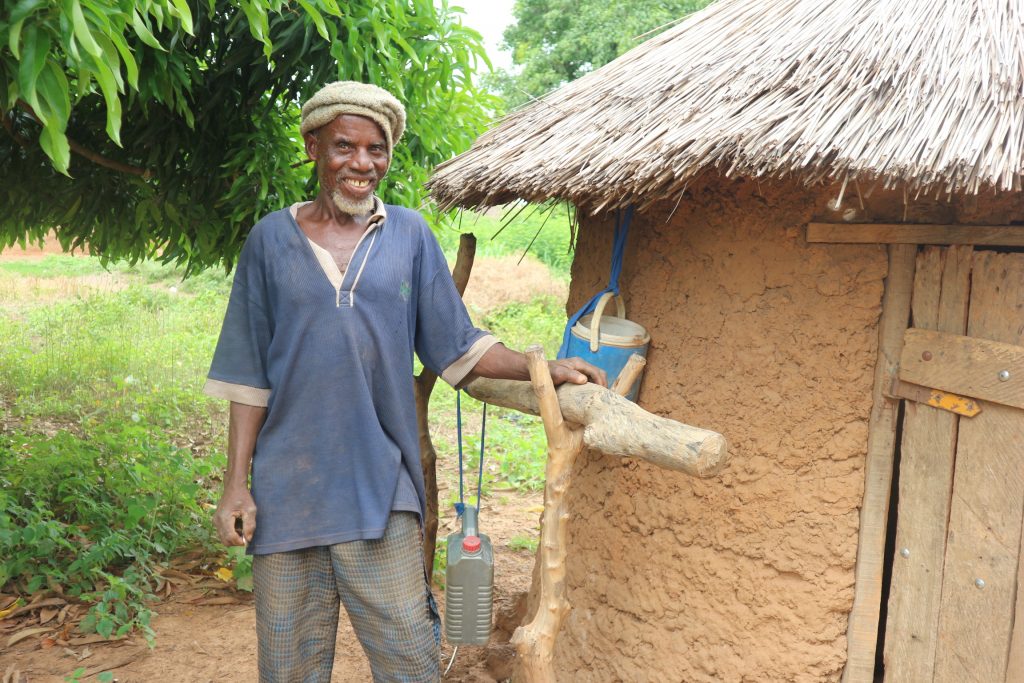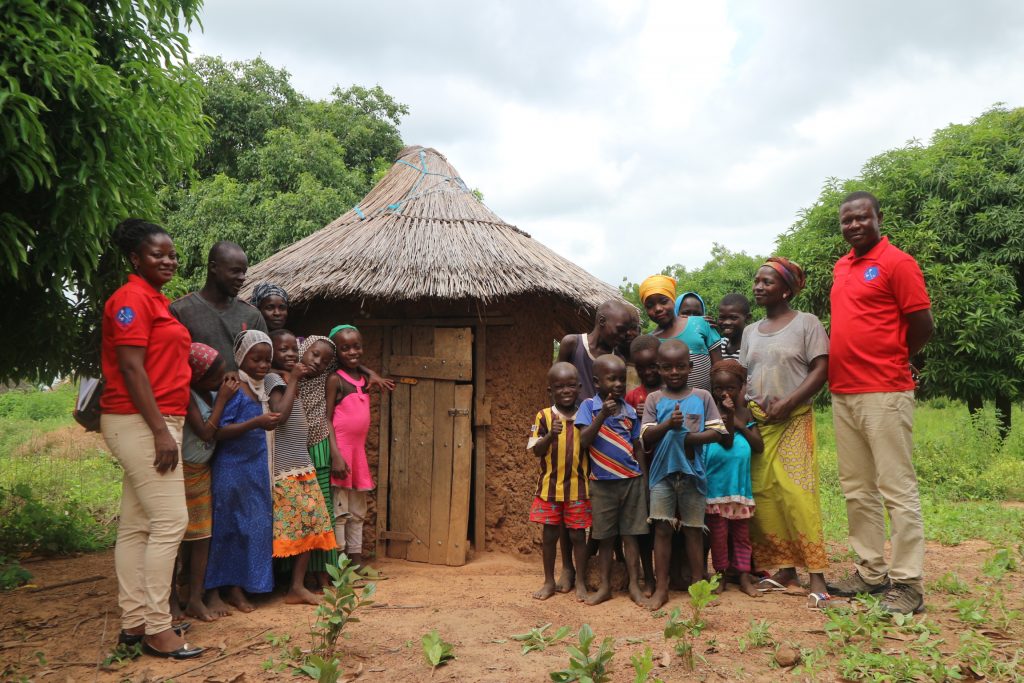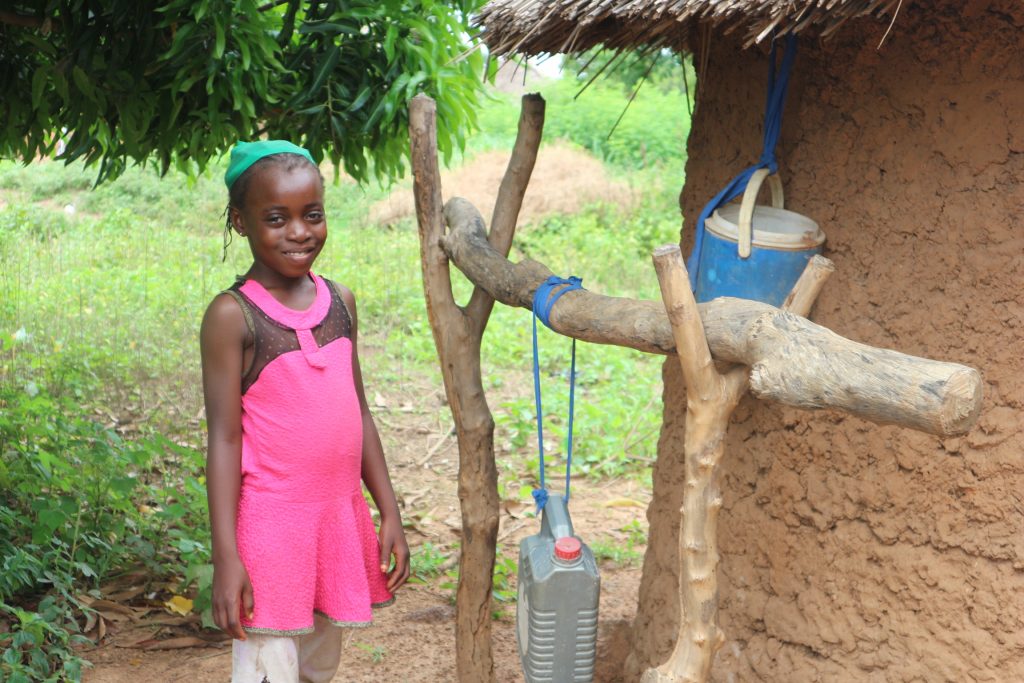Quis autem velum iure reprehe nderit. Lorem ipsum dolor sit nulla or narjusto laoreet onse ctetur adipisci.
Quis autem velum iure reprehe nderit. Lorem ipsum dolor sit nulla or narjusto laoreet onse ctetur adipisci.

A small community that ended Open Defecation
Access to water, sanitation and hygiene is a human right. Target 6.2 of the Sustainable Development Goal 6 (SDG6) seeks to achieve access to adequate and equitable sanitation and hygiene for all and end open- defecation, paying special attention to the needs of women and girls and those in vulnerable situations by the year 2030.
Before the beginning of 2019, open defecation was prevalent in Bioyili, a small community of thirteen households in the Mion District of the Northern Region, Ghana. None of the 13 households in the community had a toilet facility.
” Not a single household could boast of a latrine. Both the young and old were practising open defecation. We were not conscious of sanitation issues. This exposed us to cholera, diarrhoea and other bad sanitation-related diseases,” said Mahama Fuseini, a community leader at Bioyili.
That is no longer the story. Every household can now boast of a latrine. In May 2019, the community with a population of 129 was declared an Open-Defecation Free (ODF) community.

The elimination of open defecation in the community was made possible courtesy the Government of Ghana-UNICEF Accelerated (WASH) programme (2017-2022), which is helping Metropolitan Municipal and District Assemblies (MMDAs) in the Northern Region to eradicate open-defecation.
Under this intervention, UNICEF places Municipal/District Resource Persons (DRP) in each of the implementing districts to provide technical assistance and facilitate Community-Led Total Sanitation (CLTS) activities undertaken by the Municipal/District Environmental and Community Development teams of the respective Assemblies. These Resource Persons provided by selected Civil Society Organizations (CSOs) facilitate linkages with other sanitation and hygiene programs in the project implementation areas.
Hope For Future Generations is one of the local NGOs engaged to support the implementation of the intervention in four (4) districts namely: Yendi, Mion, West Mamprusi and East Gonja.
“As an implementing local partner, the DRP at the Mion District Assembly is from HFFG. She facilitates and monitors the implementation of the Community-Led Total Sanitation (CLTS) activities in the communities” says Peter Cleva Yabepone, the intervention Coordinator for HFFG.

In Bioyili, the DRP with the help of local stakeholders encouraged community members to adopt proper sanitation behaviours, including the construction and usage of household latrines.
“Achieving an ODF community requires the commitment of the respective assemblies towards WASH services. Teamwork between the Assembly and the DRP is always key. In Bioyili, the DRP and the District Environmental Health Officer engaged with community leaders and members. During the engagement with the community members, the team through demonstrations encouraged members to support their community to become ODF by ensuring that each household owned and use a latrine. They were also advised to keep their environment clean by sweeping and burning of the rubbish regularly. With time, they bought into the idea and now every household has a toilet facility,” Peter further explained.
In June 2019, the Mion District was adjudged the best district on the 7th Open Defecation Free League Table by the Northern Regional Coordinating Council ahead of other 28 MMDAs in the Northern Region. Currently, 146 out of 179 communities in the district have been declared Open Defecation Free. This is a feat the people Bioyili played a part in.
Mahama Fuseini, a Natural Leader in Bioyili said: “They (DRP and the team from the Mion District Assembly) showed us videos on poor sanitation practices and the effects. They demonstrated to us the link between bad sanitation practices and our health. The intervention has brought a behavioural change to our community. I can say the sanitation situation has improved tremendously. People no longer defecate openly. Open-defecation is no longer a health challenge here.”
For Maria, a 7-year-old girl and other children at Bioyili, living in an ODF community is not only a step towards achieving the SDG6 target of available and sustainable management of water and sanitation for all. It means the opportunity for all children within the Mion District to reach their full potential in a clean and hygienic environment.
“I have learnt how to wash my hands with soap or ash after visiting the toilet and before eating,” Maria said smilling.
